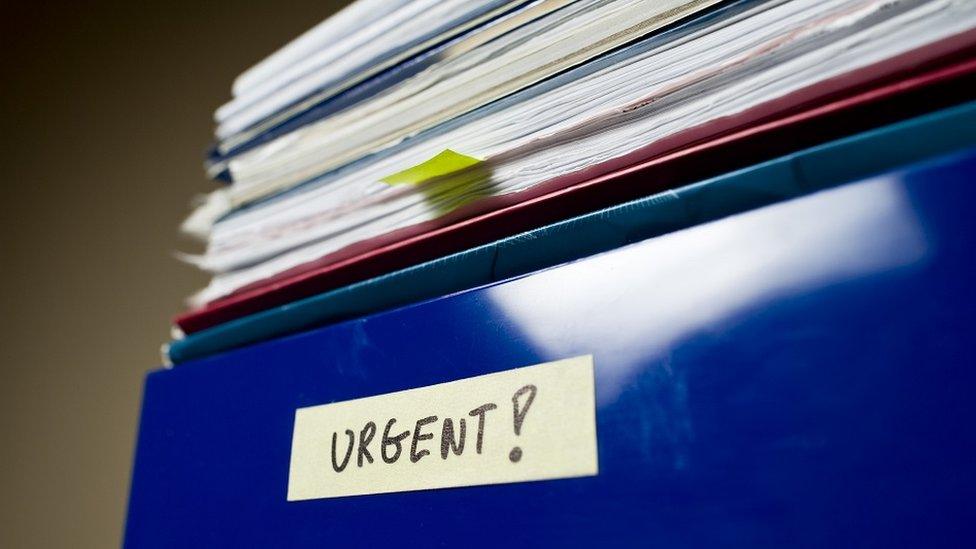The teenage take on the return of Stormont power sharing
- Published
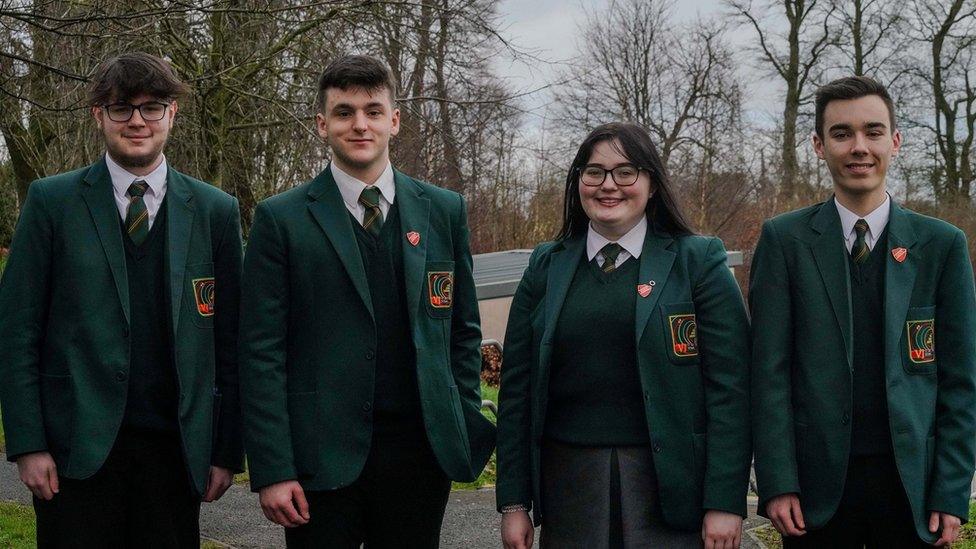
Jacob, Louis, Terri-Anne and Jack are pupils at an integrated school at Belfast
The last week has seen massive political change in Northern Ireland.
The return of devolved government, two years on from its collapse, and the first nationalist first minister in the shape of Sinn Fein's Michelle O'Neill.
Politics students at Lagan College in Belfast have been watching it all unfold.
It's Northern Ireland's first planned integrated school - set up in the 1980s specifically to educate Catholics and Protestants together.
So what do the 17 and 18-year-olds make of the past week?
Terri-Anne said: "It's almost like you're ashamed to be from here sometimes, just because of the way the government get on, like children."
"People say to themselves, the government won't last long and probably in a year or two's time there will be another problem for them to kick up a fuss about," said Jacob.
"It's too little too late from the DUP," said Louis.
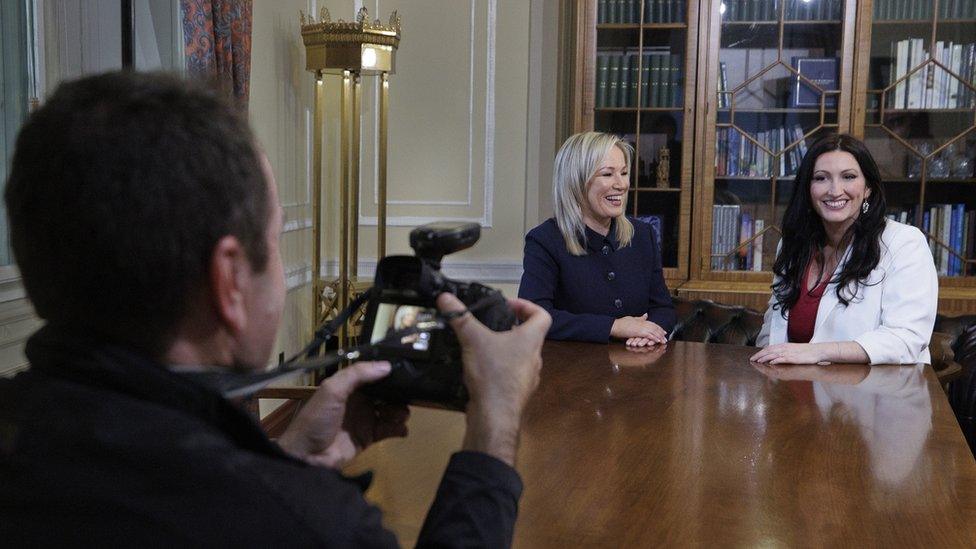
Michelle O'Neill and Emma Little-Pengelly are now Northern Ireland's first and deputy first ministers
We asked the students what it's like being a young person living in Northern Ireland.
Ryan told us: "As mad as it looks for people watching on the news, we all do lead normal enough lives here. Or at least normal for us."
These young people are part of Northern Ireland's future - but is Northern Ireland part of theirs?
Louis said: "I would love to say that I'd love to live here for the rest of my life. If Northern Ireland became more open and the political system became better, I would come back.
"It's sometimes shameful to say you're from Northern Ireland, especially as a politics student. When you go to England and you talk to people, they hear you're from Northern Ireland and they think you're a bit of a loose cannon."
"Apart from its quirks I do love living here but realistically, looking at the political situation I don't really see it getting any better," said Terri-Anne.
Sectarian divide 'embedded'
Jack said: "Personally I don't want to have to leave here, I want to actually work and get this place to work for everyone."
Ryan said he thinks the sectarian divides of Northern Ireland's past can still be felt today.
"I think it's embedded in all of us a wee tiny bit," he said.
"It's something automatically that seems to come with living here naturally. It shouldn't be like that and hopefully in generations to come it won't be."
We asked the young people if they believe they will see a united Ireland in the future, or if they think Northern Ireland will remain as part of the United Kingdom.
"I don't think there will be a united Ireland," said Jacob. "I think there will be motions to try to move towards one, but I think we should remain as part of the United Kingdom."
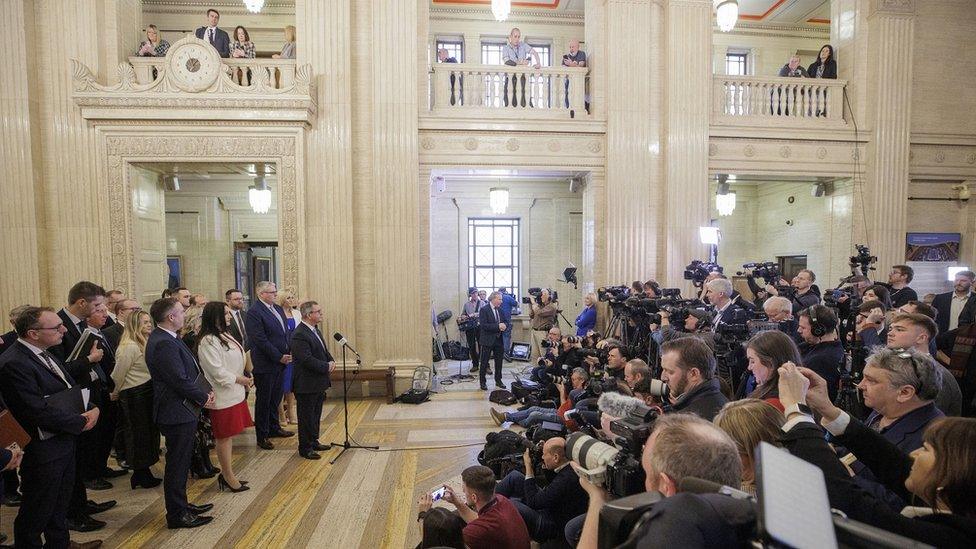
Jack disagreed.
"I'm 100% sure there will be a united Ireland in my lifetime. When you look at the situation we've had for the past two years, and over the last 100 years of partition, partition has failed everyone," he said.
Northern Ireland has its first nationalist first minister in the shape of Sinn Féin's Michelle O'Neill. What do our students make of her appointment?
Louis said: "While I don't support Sinn Féin myself, I do think Michelle O'Neill is an excellent politician and hopefully she'll do right by our country.
"It's an historic moment," Jack said. "As someone who would be a republican themselves, it's truly amazing to see that we're making progress."
And if our students could give a message to politicians in Northern Ireland, what would it be?
Louis said: "You're voted in to represent your constituents and to represent your country - do the job. You're there to solve problems, not create them.
Jack added: "For me it's just about making sure you're delivering for normal people and make sure they can stay here and live good lives."
The message from these young people is clear - but are politicians in Northern Ireland listening?
- Published3 February 2024
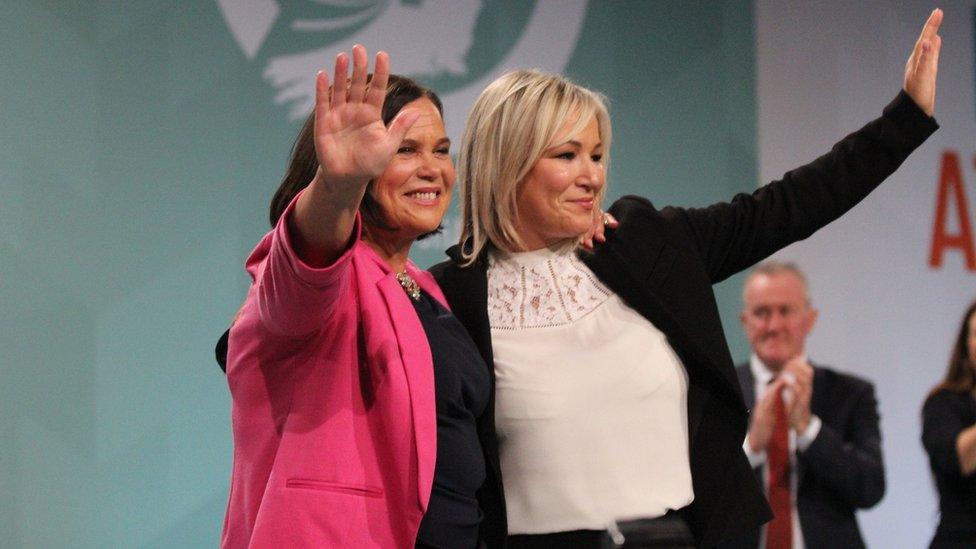
- Published4 February 2024
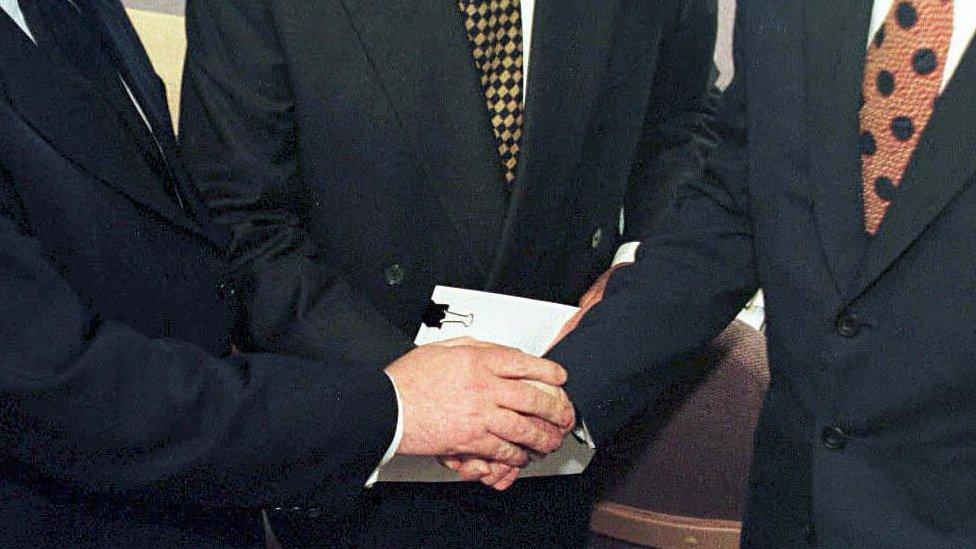
- Published3 February 2024
